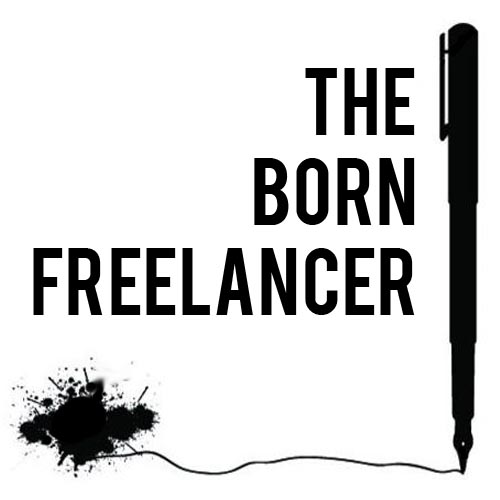CWA Canada adopts Canada’s first guidelines on media internships
By Errol Salamon
CWA Canada’s National Representative Council unanimously adopted Canada’s first guidelines on educational media internships at the union’s annual meeting in Calgary from April 29-30 to establish fair standards across the media industry.
The CWA Canada Associate Members Steering Committee wrote the 15 internship guidelines. The union’s list of priorities includes guaranteed minimum honoraria and structured training programs to ensure student interns get valuable work experience and get paid.
Emerging media workers are increasingly expected to complete internships, which are often unpaid and unstructured, as part of postsecondary programs in order to give them a competitive edge in the job market.
These internships may appear to be unfair, as student interns are often required to work full time without pay and temporarily replace permanent employees who are on vacation. That arrangement might be fine for students who can afford to intern in exchange for academic course credits and wait to eventually secure paid and stable employment. But many young interns can’t pay their bills or tuition without at least some compensation.
These standards must change. And they will if other unions, media firms, journalism schools and policymakers follow CWA Canada’s lead. CWA Canada’s internship guidelines could strengthen interns’ rights and better prepare aspiring media workers for future jobs.
Read the rest of this post »
Off The Wire: News for the Canadian media freelancer July 26-Aug 2
Once a week, we gather stories about the media business, journalism, writing, publishing, and freelancing—with a Canadian focus—and share them in Off the Wire. Who needs a water cooler?

From Canada:
- Why demanding to publish a suicide note is callous and unethical [The Tyee]
- Six months on the Chronicle Herald picket line [J-Source]
From The U.S. and beyond:
- Want to write for magazines? Do this first [The Write Life]
- How to stop email from taking over your life [Freelancers Union]
- How to cope when a freelance writing client dumps you [The Write Life]
- Hey, That’s My Story! What to Do When Credit Is Due [The Freelancer]
- Five Ways to Optimize Your Workspace for Productivity [Lifehacker]
- How to Become a More Productive Writer: 7 Helpful Tips [HubSpot]
- Ireland’s journalists get younger as experienced staff depart [The Guardian]
- How to Market Yourself as a Freelance Writer: 4 Mistakes to Avoid [The Write Life]
- For Freelancers, Are Blogs Still Important? [The Freelancer]
- What Happens When Your Editor Leaves? Advice for Freelance Writers [The Write Life]
Last week on Story Board:
- The end of local news? How hedge funds are taking over journalism: “Like a slow motion car wreck, you see it time and time again.” That’s how Emilie Rusch described the dangerous new trend of vulture hedge funds destroying local newsrooms…
- Freelancer meet-up in Toronto August 3: Toronto freelancers, you’re invited to a CMG Freelance meet-up on Wednesday, August 3rd at Bar Wellington (520 Wellington St W) from 6 to 8 p.m…
Spot a story you think we should include in next week’s Off the Wire? Email the link to editor@thestoryboard.ca or tweet us at @storyboard_ca.
The end of local news? How hedge funds are taking over journalism
by Ranziba Nehrin, CWA Associate Member

Next Generation Summit delegates on a labour tour of Detroit, walking away from an impromptu #NewsMatters rally at the Detroit News Building.
“Like a slow motion car wreck, you see it time and time again.”
That’s how Emilie Rusch described the dangerous new trend of vulture hedge funds destroying local newsrooms.
Rusch, a reporter at The Denver Post, spoke last week in Detroit, Michigan at the Communications Workers of America’s 2016 Next Generation Summit.
Panelists Sara Steffens, CWA Secretary-Treasurer, and Rusch, representing TNG-CWA Local 37074, spoke about the troubling phenomenon of hedge funds buying hometown newspapers and destroying good jobs and good journalism for the sake of profits.
Steffens, a former journalist, outlined the fight against one company: the hedge fund Alden Global Capital. Rusch provided her insights as an overworked reporter in a shrinking newsroom.
Both argued that newspapers are profitable investments and said the strategy of these vulture fund managers may indeed be to run the businesses into the ground.
An old story
The story of Alden Global Capital is common in today’s ever-challenged media landscape. Alden Global, which has purchased distressed newspapers across America, owns such well-known dailies as the Philadelphia Inquirer, Denver Post and Orange County Register.
Read the rest of this post »
Freelancer meet-up in Toronto August 3
Toronto freelancers, you’re invited to a CMG Freelance meet-up on Wednesday, August 3rd at Bar Wellington (520 Wellington St W) from 6 to 8 p.m.
CMG Freelance members and non-members are all welcome. Please join us for a free drink and some snacks, meet some colleagues and discuss all things freelance.
CMG Freelance branch president Don Genova will be there and he wants your input on what kinds of freelance professional development events you’d like to see the union offer over the coming months. It’s an opportunity to share your thoughts on the kinds of supports freelancers need.
We’ve also got some freelancer swag for member attendees: our stylish and popular “Exposure Bucks” t-shirt and a “Freelancers Toolbox” notepad.
Please RSVP at freelance@cmg.ca to let us know you’re coming. Hope to see you there!
Off The Wire: News for the Canadian media freelancer July 19-25
Once a week, we gather stories about the media business, journalism, writing, publishing, and freelancing—with a Canadian focus—and share them in Off the Wire. Who needs a water cooler?

From Canada:
- Kirstine Stewart leaving job as Twitter vice president [Toronto Star]
- How to be a faster writer [LinkedIn]
- We need to talk about The Walrus in the room [J-Source]
From The U.S. and beyond:
- 7 Ways to Be a Successful Freelancer—and Book More Repeat Assignments [Mediabistro]
- 18 Unusual Habits of Famous Writers [Freelance Writing Gigs]
- Here are 6 reasons why newspapers have dropped their paywalls [Nieman Lab]
- 5 Things To Do When Business Slows Down This Summer [Freelance to Freedom Project]
- The Freelancer’s Guide to Smartphone Photography [The Freelancer]
- 5 client red flags you should never ignore [Freelancers Union]
- 5 Ways to Reinvigorate Your Small Business During a Summer Slump [Fundbox]
Last week on Story Board:
- The Born Freelancer on Averting Deadline Disaster After Data Loss: For a writer on a deadline it’s probably the worst nightmare imaginable. You have just spent hours honing your latest work. It could be the result of a glitch in your software. Or a sudden loss of household power. Or even that nearby cold cup of coffee suddenly dumping its contents into your keyboard. One moment it was all there on the screen. The next moment (or perhaps a few moments later after a reboot) your work is gone…
Spot a story you think we should include in next week’s Off the Wire? Email the link to editor@thestoryboard.ca or tweet us at @storyboard_ca.
The Born Freelancer on Averting Deadline Disaster After Data Loss
This series of posts by the Born Freelancer shares personal experiences and thoughts on issues relevant to freelancers. Have something to add to the conversation? Your input is welcome in  the comments.
the comments.
For a writer on a deadline it’s probably the worst nightmare imaginable.
You have just spent hours honing your latest work.
It could be the result of a glitch in your software. Or a sudden loss of household power. Or even that nearby cold cup of coffee suddenly dumping its contents into your keyboard.
One moment it was all there on the screen. The next moment (or perhaps a few moments later after a reboot) your work is gone.
You feel nothing but abject panic in the pit of your stomach.
Then you remember you have always backed up – or have an automatic back up protocol in place – and the panic subsides. You can just revert to your last saved draft. Whew!
But what if you forgot to back up? Or what if your back up software somehow malfunctioned? What if you face total data loss?
You now face deadline disaster.
What do you do?
Off The Wire: News for the Canadian media freelancer July 12-18
Once a week, we gather stories about the media business, journalism, writing, publishing, and freelancing—with a Canadian focus—and share them in Off the Wire. Who needs a water cooler?

From Canada:
- Freelancers helped invent digital communications tools to build online networks [J-Source]
- Briarpatch surpasses fundraising goal [Masthead]
- Are Canadian public editors and ombuds independent enough to do their jobs? [J-Source]
From The U.S. and beyond:
- 6 Lucrative Freelance Writing Clients to Add to Your Portfolio [The Write Life]
- Social media and the changing face of conflict reporting [Journalism.co.uk]
- 5 Reasons Writing is the Worst Job Ever (And Why We Do it Anyway) [The Write Life]
- 6 freelancing rules that aren’t confusing at all [The Freelancer]
- Fox reaches settlement in landmark lawsuit over unpaid internships [Hollywood Reporter]
- 7 Ways to Be a Successful Freelancer—and Book More Repeat Assignments [Mediabistro]
Last week on Story Board:
- The 5-Minute Freelancer Q&A #31 — David Hayes: In this regular feature, Story Board asks Canadian writers to share a few details about their work habits and their strategies for navigating the ups and downs of freelance life...
- There’s gold in them thar trade mags!: As freelance writers, we often overlook trade publications as potential markets—largely because they are not visible. Rarely sold at newsstands, the majority of trade magazines are mailed directly to private audiences—usually to members of a particular trade or profession—be it doctors, pilots, bankers, bakers, embalmers, and truckers…
Spot a story you think we should include in next week’s Off the Wire? Email the link to editor@thestoryboard.ca or tweet us at @storyboard_ca.
The 5-Minute Freelancer Q&A #31 — David Hayes
In this regular feature, Story Board asks Canadian writers to share a few details about their work habits and their strategies for navigating the ups and downs of freelance life.
David Hayes is an award-winning freelance journalist who has written four nonfiction books as well as features and articles for publications such as The Walrus, The New York Times Magazine and The Globe and Mail.
A career freelance writer, he shares his expertise through a course in feature writing at Ryerson University in Toronto as well as through the Toronto Freelance Editors and Writers listserv (TFEW) — an email listserv that he co-founded in the late ’90s.
David took the time to speak with Story Board recently about what makes a good feature pitch, the importance of freelance networks and the best opportunities for writers these days.
How did TFEW come to be?
Alex Gillis and I co-founded it. I was teaching at Ryerson full time and Alex was my student. He and another woman, a writer named Siobhan Roberts came up to me and said “it’s so lonely being a freelancer. You’re home alone all the time. You have no one to talk to. It would be really nice if a bunch of us freelancers could get together.”
Read the rest of this post »
There’s gold in them thar trade mags!
by Sandra Phinney
As freelance writers, we often overlook trade publications as potential markets—largely because they are not visible. Rarely sold at newsstands, the majority of trade magazines are mailed directly to private audiences—usually to members of a particular trade or profession—be it doctors, pilots, bankers, bakers, embalmers, and truckers.
In some cases, trade magazines are mailed to corporate stockholders, government departments, agencies, or educational institutions. Others are created as marketing tools by retail giants, and offered at checkouts or mailed to card-holding customers. My guess is there are as many trade publications as there are regular mainstream publications in Canada, so the market potential is vast.
Where to start
Remember the old adage, “Write what you know?” Add to that, “Write what you are interested in.” So, for example, if food strikes your fancy, visit cooking schools, food technology centres, processors and restaurants—and get copies of the trade publications they subscribe to.
Sure—writing for some trade journals can be a bit technical and dry. Penning a story about basement waterproofing for a construction magazine or the latest feeding technology for pigs for a farm publication may not appear to be very scintillating. Yet, weave in a little human interest and even dry topics can be a lot of fun. I once had an editor ask if I would write about funeral co-ops. Turned out to be fascinating.
Once you’ve read a handful of trade publications, you’ll notice that they frequently feature profiles. So, for example, if you know of a lawyer who has a penchant for flying kites, it could make for a great story in The Lawyer’s Weekly. Does your pharmacist collect exotic birds? Has your family doctor just come back from doing a stint for Doctors Without Borders? All worth pitching to related professional publications.
Read the rest of this post »
Off The Wire: News for the Canadian media freelancer July 5-11
Once a week, we gather stories about the media business, journalism, writing, publishing, and freelancing—with a Canadian focus—and share them in Off the Wire. Who needs a water cooler?

From Canada:
- Postmedia announces plan to reduce $648 million debt [J-Source]
- Who still believes Postmedia is Canadian controlled? [The Tyee]
- Shrinking press galleries leave little time for journalists to dig deep [J-Source]
- Briarpatch magazine supporters step up; it is going to double contributor rates [Canadian Magazines]
- Ryerson reporting project on Truth and Reconciliation makes waves [J-Source]
From The U.S. and beyond:
- Why Successful Freelancers Must Make Time for Self-Care [The Write Life]
- What to Do at Every Stage of a Late Payment [The Freelancer]
- How to pitch for the holidays [Mediabistro]
- 5 Ways to Set Yourself Up for Full-Time Freelance Writing Success [The Write Life]
- Vice Contract Requires All Rights, Photographers to Pay for Any Losses [Fstoppers]
- How BuzzFeed wants to use its social media acumen to take on the hoaxers [Nieman Lab]
Last week on Story Board:
- Freelancers helped invent digital communication tools to build online networks: Before the Internet and World Wide Web became fully commercialized in the mid-1990s, freelance writers and photographers began using computer networks as organizing tools as early as 1992…
- New monthly payment option for CMG Freelance members: Good news, CMG Freelance members: there’s now a brand new way to pay your dues…
Spot a story you think we should include in next week’s Off the Wire? Email the link to editor@thestoryboard.ca or tweet us at @storyboard_ca.




